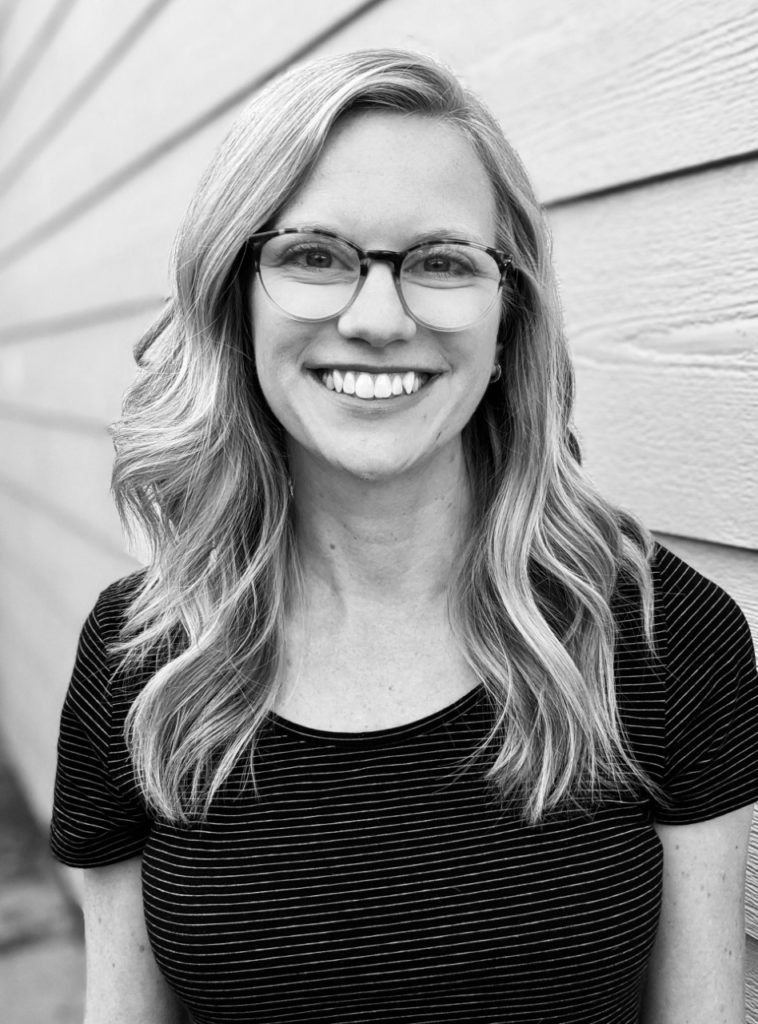
Hope Cornelis (M.S. ’17) serves as the program coordinator for the Sexual Assault Resource Team Peers at Poudre School District in Fort Collins. She is originally from Illinois, and came to Colorado State University in 2015 to pursue a master’s degree in the Department of Human Development and Family Studies. She was initially drawn to the department’s Marriage and Family Therapy Program. After discovering the prevention science track, however, she decided that it was a better fit for her personal interests and career goals. Cornelis was the first student to complete the prevention science master’s track in 2017. She had wanted to move to Colorado for a long time, and grad school was the perfect opportunity to make the move. She loves taking advantage of all Fort Collins has to offer and enjoys hiking, running, camping, breweries, and hanging out with her dog.
Describe your current position and some of the responsibilities that come with it.
I am currently working with Poudre School District and the Sexual Assault Victim Advocate (SAVA) Center as the program coordinator for SART Peers. SART stands for Sexual Assault Resource Team, and it is a school-based sexual violence prevention program with a peer educator model. I am responsible for training high school student leaders to educate their peers about sexual violence prevention. I also get to witness these presentations and support students along the way. In addition, I train PSD staff on best practices for responding to disclosures of sexual abuse and addressing Title IX complaints. Overall, I am working to create a safer school community in Poudre School District.
How has COVID-19 changed operations and how are you responding to it?
PSD is starting the school year off with remote learning, which greatly impacts my work. I typically provide in-person, eight-hour trainings for each high school program in the fall semester, and I’m unable to do that at this time. However, I am committed to providing as much training as possible online, and the peer educators will be offering virtual presentations and support in their school’s classes later this semester and into the spring if we are still remote.
Why did you decide to pursue your current career path?
I have always wanted a career in which I could help people, specifically with relationship issues. As I mentioned, I was previously interested in becoming a therapist, but I fell in love with prevention work while working with youth at a domestic violence shelter. I love being in a career that is rooted in strengthening the community through educating young people. The work can be heavy at times, but it is grounded in hope and positivity.
How have your education and experiences at CSU helped you in your career in prevention science? Was there a faculty member who inspired you the most?
I use the knowledge and skills I gained in the Prevention Science Program nearly every day. I am responsible for the ongoing development, implementation, and evaluation of a prevention program – concepts that were the primary focus of the prevention science master’s degree. In addition, I worked closely with SAVA while in grad school to complete my thesis project, which established a connection that gave me a leg up when applying to this job. I was inspired by many HDFS faculty members who dedicate their research to finding ways to improve the lives of all people throughout the lifespan, especially the most vulnerable populations.
What were your research areas at CSU?
I worked with Dr. Nate Riggs on my thesis and several other projects. For my thesis, I conducted a program evaluation of one of SAVA’s middle school prevention programs called Speak Up. In addition, I worked with Nate to evaluate a school-based mindfulness intervention program. I also worked with CSU Extension as a research assistant on various projects, and I assisted the Prevention Research Center on a project designed to create healthier and more innovative school systems. All these projects provided opportunities for me to connect with the local community and gain experience working with schools – something I now do every day.
What advice to you have for students looking for a full-time job in your field?
Once you’ve identified what you’re most passionate about, seek opportunities to gain experience in that area, whether it is through research, an internship, volunteer opportunities, or networking. It will pay off in the long run. Be open to discovering new avenues to obtain the career you want. Prevention Science is versatile, so keep an open mind and dream big!
The Department of Human Development and Family Studies is a part of CSU’s College of Health and Human Sciences.